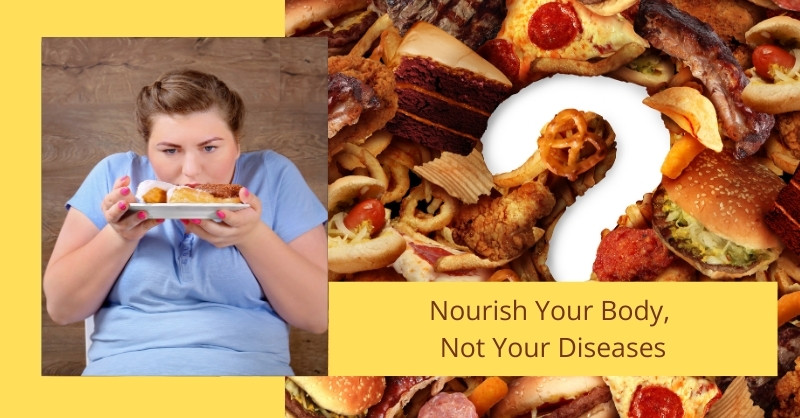Our eating habits play a pivotal role in shaping our health and overall well-being. Yet, in today’s fast-paced world, unhealthy dietary choices have become all too common, leading to a host of physical and mental health problems. In this comprehensive guide, we delve into how eating habits harm your health, the potential consequences of poor nutrition, and practical steps to build healthier habits.
How Eating Habits Harm Your Health
The connection between diet and health is undeniable. Poor eating habits can result in significant harm to your body, leading to chronic illnesses and reduced quality of life. Here are some key ways in which eating habits harm your health:
1. Cardiometabolic Diseases
One of the most severe outcomes of unhealthy eating habits is the development of cardiometabolic diseases such as heart disease, stroke, and diabetes. Diets high in processed meats, sodium, and sugary drinks increase the risk of these conditions, while diets rich in fruits, vegetables, and polyunsaturated fats can protect against them.
2. Obesity and Weight Gain
Overeating and consuming calorie-dense foods devoid of nutrients are major contributors to obesity. Excess weight is linked to various health issues, including joint pain, sleep apnea, and cardiovascular problems. Unchecked, these eating habits harm your health by exacerbating existing medical conditions.
3. High Blood Pressure
Excessive sodium intake from processed and fast foods is a leading cause of high blood pressure. High blood pressure, in turn, increases the risk of heart disease and stroke, creating a vicious cycle of poor health outcomes.
4. Health Disparities
Unhealthy eating patterns often exacerbate health disparities. Limited access to fresh, nutritious foods in certain communities can make it challenging to maintain a healthy diet, leading to increased rates of chronic illnesses.

Specific Examples of How Eating Habits Harm Your Health
1. Overeating Effects
Overeating, especially when it comes to processed and high-sugar foods, can overwhelm your body’s metabolic system. This leads to increased fat storage, insulin resistance, and ultimately, type 2 diabetes. Excessive portions and frequent snacking are common culprits.
2. Processed Meats and Sugary Drinks
Regular consumption of processed meats and sugary drinks contributes to inflammation, obesity, and an increased risk of cancer. Processed meats like bacon and sausages are high in harmful nitrates, while sugary beverages are loaded with empty calories that spike blood sugar levels.
3. Nutritional Deficiencies
Unhealthy eating habits, such as avoiding vegetables, fruits, and nuts, deprive the body of essential nutrients like omega-3 fatty acids, vitamins, and minerals. Nutritional deficiencies weaken the immune system and impair physical and mental health.
Why Eating Habits Harm Your Health
Poor eating habits don’t just affect physical health; they also take a toll on mental well-being. Here’s why these habits are so detrimental:
1. Increased Risk of Depression and Anxiety
Research shows a strong link between diet and mental health. Diets high in processed and sugary foods can worsen symptoms of depression and anxiety. Conversely, a balanced diet rich in omega-3 fatty acids and vitamins can enhance mood and cognitive function.
2. Fatigue and Low Energy
A diet lacking in essential nutrients results in fatigue and decreased productivity. Over time, eating habits harm your health by reducing your body’s ability to repair itself and maintain optimal energy levels.
3. Poor Gut Health
Processed foods, high sugar intake, and low fiber consumption disrupt gut microbiota, leading to digestive problems and inflammation. A healthy gut is crucial for overall health, as it affects everything from immune function to mood regulation.
Long-Term Consequences of Unhealthy Eating Habits
1. Chronic Illnesses
Poor dietary habits are a leading cause of chronic illnesses such as diabetes, heart disease, and certain cancers. These conditions not only reduce life expectancy but also significantly diminish quality of life.
2. Cognitive Decline
Unhealthy eating habits can harm brain health, leading to cognitive decline and an increased risk of Alzheimer’s disease. Diets rich in antioxidants and healthy fats are essential for maintaining cognitive function.
3. Weak Immune System
A poor diet weakens the immune system, making the body more susceptible to infections and diseases. Eating habits harm your health by impairing your body’s natural defense mechanisms.
Healthy Eating Habits: A Path to Wellness
Reversing the effects of unhealthy eating habits is possible with conscious effort. Here’s how to build better habits:
1. Focus on Whole Foods
Replace processed foods with whole foods like fruits, vegetables, nuts, and whole grains. These nutrient-rich foods provide the vitamins and minerals your body needs to function optimally.
2. Limit Sugary and Sweetened Drinks
Sugary drinks are a major source of empty calories. Replace them with healthier options like water, herbal teas, or infused water with fruits for a refreshing alternative.
3. Incorporate Omega-3 and Polyunsaturated Fats
Include foods rich in omega-3 fatty acids and polyunsaturated fats, such as salmon, flaxseeds, and walnuts, in your diet. These fats are essential for heart and brain health.

4. Control Portion Sizes
Avoid overeating by paying attention to portion sizes. Use smaller plates, eat slowly, and stop eating when you’re satisfied rather than full.
Steps to Prevent Eating Habits That Harm Your Health
1. Meal Planning
Plan your meals in advance to ensure they’re balanced and nutritious. Meal prepping can save time and help you avoid unhealthy food choices during busy days.
2. Read Food Labels
Understanding food labels is key to making informed choices. Look for hidden sugars, sodium levels, and unhealthy fats when selecting packaged foods.
3. Practice Mindful Eating
Mindful eating involves being present during meals, savoring each bite, and avoiding distractions like television or smartphones. This practice can help prevent overeating and promote better digestion.
Conclusion
Eating habits harm your health in more ways than one, from increasing the risk of chronic illnesses to affecting mental well-being. However, by understanding the impact of your dietary choices and adopting healthier eating habits, you can protect your health and improve your quality of life. Start small by incorporating whole foods, managing portions, and avoiding sugary and processed foods. Over time, these changes will pave the way to lasting health and wellness.



